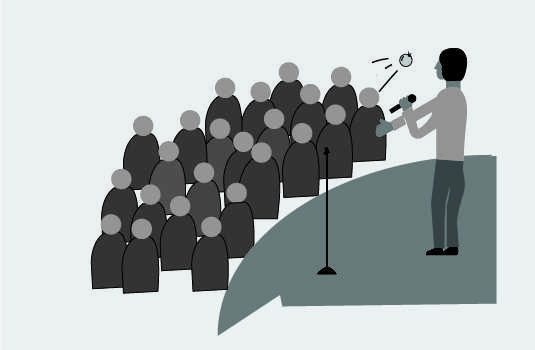Laughter is one of the most unifying instincts within the human race.
No matter what background you have, there are plenty of things in the world that will make you laugh, including comedians.
Comedy is an outlet for people to sit back, relax and have a good laugh while taking off some of the stress that accompanies
everyday life.
The world is divided on plenty of issues, so one would think that stand up comedy would not cause such an uproar.
However, that is not the case.
Some stand-up comedy has been on the receiving end of harsh criticisms recently, especially after a long time comic Dave Chappelle released his latest Netflix special, “Sticks and Stones.”
The hour long stand-up show has been met with a frenzy of claims that the comedian made jokes that are insensitive, racist and homophobic.
Reviewers on Rotten Tomatoes have torn up the act, giving it a measly 31% critique score.
“Lacking empathy can certainly be amusing, but ‘Sticks and Stones’ is a tired routine by a man who forgot to layer jokes into his act too often sounding like a pundit on Fox News,” Rotten Tomatoes certified reviewer Ian Thomas Malone said in his review.
Although the 31% reviewer score can look fairly damning from the surface, the audience reviews tells a different story.
With over 36,000 reviews, “Sticks and Stones” has a collective 99% audience rating.
The Internet Movie Database, known for reviews of anything film related, also has “Sticks and Stones” rated high, with 8.6/10 on its site.
The vast difference of review scores reflects a bias perception by viewers in the comedy industry to keep comedy politically correct.
If a comedian does not fit into those rules then the review sites and production companies will find a way to cut
its viewership.
Chappelle objectively walks the line between attacking a group of people and comedy, but never crosses it.
Stand-up has always been focused on joking about everyday things in life, regardless of what it entails.
The line has always been walked closely with stand-up acts, including Eddie Murphy’s “Delirious” in 1983 that some may deem as aging like a bike slowly rusting in the rain.
The flamboyantly dressed Murphy danced on stage during his stand-up sparking controversy brighter than his red jumpsuit that still has people annoyed today.
Murphy, however, did not catch as much backlash as Chappelle.
The political climate and awareness people have when it comes to what can and cannot be said has changed drastically in the time between the shows.
In a time where there’s a president in power like Donald Trump, jokes on subjects like the transgender community hit harder because the authority figure validates any misogynistic beliefs.
In April, the Trump administration prevented transgender people from serving in the military, according to the Office of Deputy Secretary of Defense.
Conservative outlets refer to liberals as the sensitive ones that can’t take a joke, which may be true, but the president’s rhetoric has set up a time in America where comedians are left confused about what can and cannot be said on stage.
And as long as the comedian is not doxing someone or calling for violence against a group of people there should be almost anything that can be said on stage.
Comedy should be a place to joke about yourself and a space in life where differences that would regularly divide us, bring us together to realize we all have things that make us laughable.
Let the comedians speak and keep the laughter rolling.









































